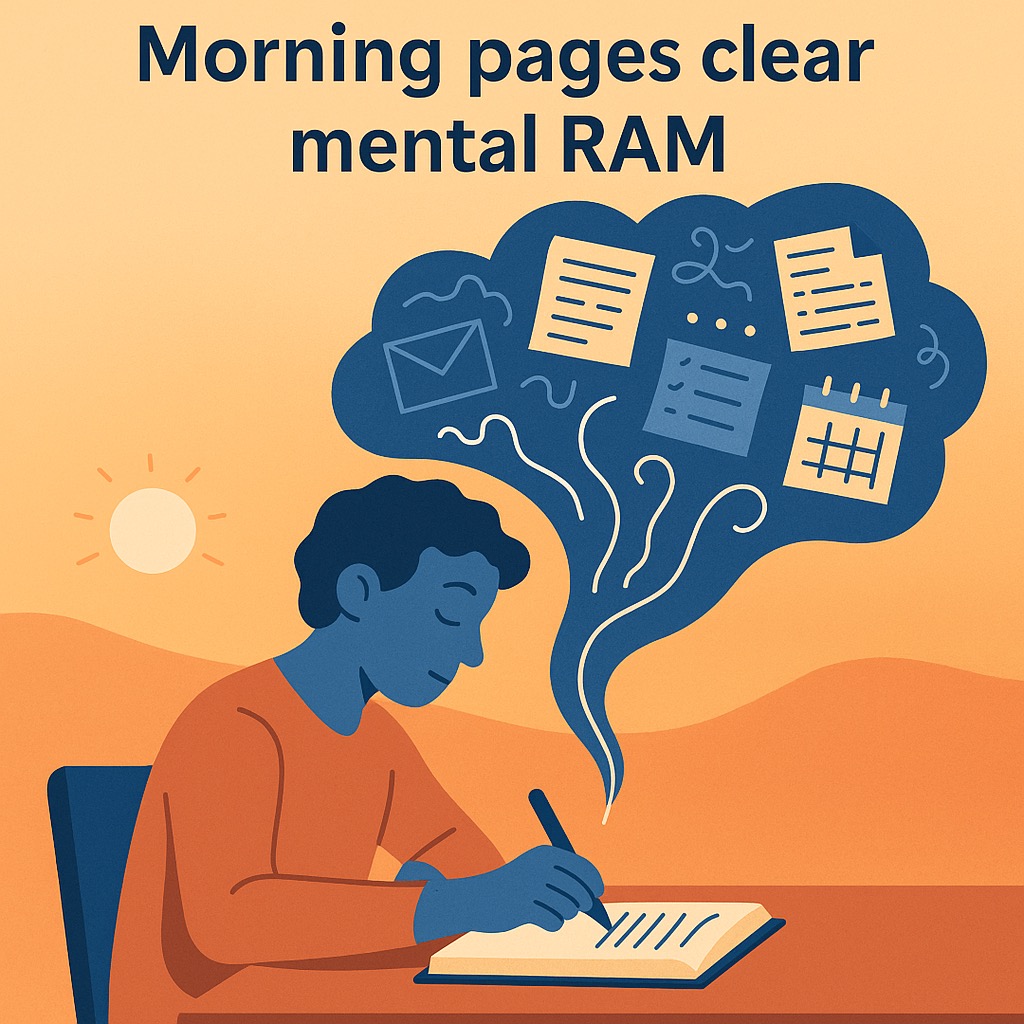Most leaders wake up and immediately face a flood of unfinished thoughts: emails left hanging, projects unresolved, conversations replaying. Neuroscience has a name for this phenomenon — the Zeigarnik effect. The brain is wired to hold onto incomplete tasks, keeping them active in working memory as "open loops." While this was once useful for survival ("don't forget to finish building that shelter"), in modern business it means yesterday's worries quietly drain your cognitive resources before the day even begins.
The Science of Open Loops
The prefrontal cortex (PFC), the brain's executive hub, is responsible for high-level functions like decision-making, problem-solving, and emotional regulation. When it's bogged down by unresolved fragments from yesterday, its bandwidth shrinks. The Zeigarnik effect essentially taxes the PFC, leaving leaders more prone to distraction, reactive decision-making, and stress-driven default patterns.
Neuroscience research shows that externalising unfinished thoughts — literally writing them down — reduces their load on working memory. This isn't about making polished journal entries. It's about creating a cognitive dump file. Once the brain knows the thought is safely "stored," it releases the loop, freeing up executive function for the tasks that matter most.
Why Morning Pages Work
Morning pages — three handwritten, stream-of-consciousness pages completed on waking — leverage this principle. Their power comes from three combined mechanisms:
1. Loop Closure: By externalising unfinished thoughts, you close the Zeigarnik loops that otherwise hijack attention throughout the day.
2. Motor + Language Activation: Handwriting (not typing) engages both motor areas and language networks, promoting deeper emotional processing and integration.
3. Pattern Recognition: With the clutter out of the way, recurring themes and hidden priorities emerge, often revealing insights your "thinking brain" missed.
Leaders who practise morning pages for even a week often report sharper focus, reduced mental noise, and greater creative problem-solving capacity. It's like clearing your computer's RAM before loading a new operating system — without it, yesterday's processes keep slowing today's performance.
From Brain Hygiene to Business Advantage
Morning pages aren't just a personal productivity hack. They're a leadership tool. When leaders consistently clear their mental RAM, they show up calmer, more focused, and more present. That state ripples into team dynamics: fewer reactive decisions, more creative solutions, and greater psychological safety.
This ties back to earlier posts in this series:
* Where intentions (Post 1) prime the Reticular Activating System to filter for what matters, morning pages ensure the filter isn't clogged with yesterday's noise. * Where loss-aversion (Post 2) biases the brain toward fear, morning pages help surface those fears on paper so they can be reframed rather than unconsciously driving behaviour. * And alongside gratitude (Post 3), morning pages create the cognitive space for optimism and resilience to actually take root.
In other words, morning pages provide the neural hygiene that makes other leadership practices stick.
Implementation Guide
- Do it first thing: Before email, Slack, or news. The brain is most receptive to reset right after waking.
- Write by hand: Three pages, free-flow, no censoring. Grammar and spelling don't matter — dumping content does.
- Let themes emerge: Don't force insights. After a few days, you'll naturally notice recurring patterns, hidden priorities, or emotional residues that need addressing.
- Pair with intention: Once pages are done, jot a single leadership intention for the day. This combines loop closure with proactive RAS priming.
Closing Thought
Morning pages are not about writing beautifully; they're about thinking clearly. By offloading cognitive residue, you reclaim executive bandwidth and allow your brain's most valuable circuits to operate at full strength. For leaders navigating complex, high-stakes environments, this practice is less about creativity for its own sake and more about strategic brain maintenance.
In leadership, the greatest competitive advantage often isn't more information or more tools — it's more cognitive clarity. Morning pages give you that clarity, one handwritten line at a time.
Additional Resources
The Artist's Way by Julia Cameron - The original source of the morning pages practice, providing comprehensive guidance on this transformative writing technique.
Research on the Zeigarnik Effect - Understanding the psychological phenomenon that keeps unfinished tasks active in working memory.
Connect with Us
See this post on our LinkedIn - Discover how morning pages can transform your leadership clarity and executive presence.
Follow us for more insights on neuroscience-based leadership practices and cognitive optimization strategies!
